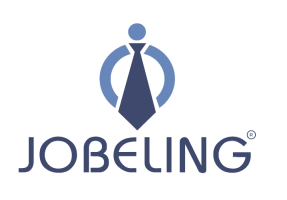
Selecting the right talent managers for actors has always been a cornerstone of a successful acting career, and as the industry evolves, so do the demands and skills required of these managers. In 2025, actors must look for specific qualities and approaches to find the perfect manager who can elevate their career. From identifying the ideal skill sets to understanding digital integration, here’s how to choose the best talent managers for actors in 2025.
Talent managers play a crucial role in an actor’s journey, providing guidance, industry connections, and career development. However, the role of talent managers for actors has grown significantly as digital platforms, brand partnerships, and the global entertainment landscape evolve. This guide by Jobeling dives into the essential qualities to look for in a talent manager today, with an eye toward future trends.
Contents
- 1 The Role of Talent Managers for Actors
- 2 Understanding the Value of a Good Talent Manager
- 3 Skills to Look for in Talent Managers for Actors
- 4 Identifying Your Needs as an Actor
- 5 Evaluating Experience and Background
- 6 Digital Adaptability in a Manager
- 7 Vetting Potential Talent Managers
- 8 Building a Long-Term Relationship with Your Talent Manager
- 9 Negotiating a Talent Manager Contract
- 10 Questions to Ask Potential Talent Managers
- 11 Common Mistakes When Choosing a Talent Manager
- 12 Choosing Talent Managers for Actors in 2025 with Jobeling
- 13 Evaluating Personality Fit with a Talent Manager
- 14 FAQs
- 14.1 What should an actor look for in a talent manager in 2025?
- 14.2 How can Jobeling help in finding talent managers for actors?
- 14.3 What is the average commission rate for talent managers?
- 14.4 Why is digital adaptability important for talent managers?
- 14.5 How can I tell if a talent manager is right for me?
- 14.6 Are there specific types of talent managers for film vs. commercial actors?
- 15 Conclusion
The Role of Talent Managers for Actors
In today’s entertainment industry, a talent manager for actors goes beyond securing auditions.

They are strategists, brand managers, and key advisors who help actors navigate the complexities of the entertainment landscape.
Key Responsibilities of Talent Managers
- Career Planning: Developing a personalized strategy for the actor’s career.
- Networking and Connections: Utilizing industry contacts to open doors.
- Contract Negotiation: Ensuring favorable terms for projects.
- Brand Development: Building an actor’s personal brand to maximize opportunities.
Understanding the Value of a Good Talent Manager
A good talent manager can be a game-changer, particularly in 2025. With content distribution diversifying through streaming services and digital platforms, actors need managers who are not only skilled but also innovative.
Benefits of a Strong Talent Manager
- Guidance and Mentorship: Provides insights that can help actors avoid pitfalls.
- Increased Opportunities: Has connections and knowledge of available roles.
- Financial Growth: Helps actors maximize their earnings through brand-building and endorsements.
- Emotional Support: Offers stability and advice in a high-stress industry.
Skills to Look for in Talent Managers for Actors
Finding the right talent managers for actors involves evaluating a range of skills, both traditional and modern.
Essential Skills for 2025
- Industry Knowledge: Up-to-date on trends, casting news, and market shifts.
- Digital Savvy: Understands social media, streaming trends, and digital branding.
- People Skills: Can effectively network and maintain strong relationships.
- Negotiation Skills: Secures the best deals for contracts and endorsements.
Identifying Your Needs as an Actor
Choosing the right talent manager also means understanding your own career goals. Not all managers specialize in the same types of acting work, so it’s essential to align your needs with a manager’s expertise.
Types of Actors and Corresponding Talent Managers
- Film Actors: Often need managers with strong connections in Hollywood and international film.
- TV Actors: Should seek managers familiar with series regulars and network TV.
- Commercial Actors: Require managers skilled in quick, high-volume work.
- Social Media Influencers: Benefit from managers who can secure brand deals and online exposure.
Evaluating Experience and Background
Experience can often be a marker of quality, but not all experience is equal.

Look for talent managers for actors with a proven track record in areas relevant to your career goals.
Questions to Ask About Experience
- How long have you been managing actors?
- What genres or markets do you specialize in?
- Can you provide examples of successful actor placements?
Digital Adaptability in a Manager
In 2025, it’s critical for talent managers to be digitally savvy. The entertainment industry now heavily relies on online media, social platforms, and streaming services.
Digital Skills to Look For
- Social Media Management: Ability to boost your online presence.
- Analytics and Trends: Understanding audience insights to guide brand development.
- Content Creation: Proficiency in creating or managing social content.
Vetting Potential Talent Managers
Once you have a list of potential talent managers for actors, it’s time to narrow it down through a careful vetting process.
Steps in the Vetting Process
- Review References: Reach out to other actors they’ve worked with.
- Ask for Specifics: Inquire about career highlights and strategy examples.
- Trial Periods: Some managers offer a trial period; use this time to evaluate compatibility.
Building a Long-Term Relationship with Your Talent Manager
The relationship between an actor and their talent manager is often a long-term commitment. Cultivating a productive partnership requires transparency, communication, and mutual respect.
Maintaining Effective Communication
- Regular Updates: Ensure frequent check-ins on career progress.
- Open Dialogue: Discuss goals, concerns, and career shifts openly.
- Feedback: Be receptive to feedback from your manager.
Negotiating a Talent Manager Contract
Contracts are a major part of any actor-manager relationship. Reviewing and negotiating terms can protect both parties and foster a healthier working relationship.
Key Contract Clauses
- Commission Rate: Generally between 10-20% of earnings.
- Duration and Renewal: Specify contract length and renewal conditions.
- Exit Clause: Conditions under which you can terminate the contract.
Questions to Ask Potential Talent Managers
When considering talent managers for actors, having a list of key questions can help reveal their potential fit for your needs.

Essential Questions for Potential Managers
- How do you handle social media and online presence?
- What’s your process for submitting actors to casting directors?
- How many clients do you currently manage?
Common Mistakes When Choosing a Talent Manager
Selecting the wrong manager can set back an actor’s career, so it’s vital to avoid common pitfalls.
Mistakes to Avoid
- Overlooking Digital Skills: In 2025, digital adaptability is non-negotiable.
- Choosing Based Solely on Reputation: Find a manager with compatible values.
- Skipping a Trial Period: Take time to evaluate the working dynamic.
Choosing Talent Managers for Actors in 2025 with Jobeling
To simplify the search, Jobeling, a modern talent agency app, connects actors with top talent managers for actors suited to individual career goals. Jobeling’s unique algorithm matches actors with managers specializing in their niche, leveraging data to align personalities, goals, and experience levels. With Jobeling, actors gain access to an extensive network of seasoned professionals, opening doors to auditions, brand deals, and career growth.
Jobeling also supports actor-manager collaboration with real-time performance metrics, seamless communication tools, and digital portfolio management, making it a vital resource for success in today’s digital-focused industry.
Evaluating Personality Fit with a Talent Manager
Beyond skills and experience, a successful partnership with a talent manager for actors relies on a strong personality fit.

Finding a manager whose values, communication style, and approach align with your own can greatly impact the dynamic of the working relationship and ultimately, your career trajectory.
Why Personality Fit Matters
A manager who understands your ambitions and approach to the craft will be better equipped to represent you authentically in the industry. This shared understanding fosters trust, allowing you to focus on your performances without concerns about your manager’s intentions or methods.
Assessing Compatibility
Consider arranging a few in-depth conversations to gauge how well you connect with a potential manager. During these discussions, observe their enthusiasm for your career, their responsiveness to your input, and their attitude towards collaboration.
Signs of a Good Personality Match
- Active Listening: A manager who listens closely to your goals and aspirations.
- Shared Vision: Someone who envisions your potential and growth in similar ways.
- Transparent Communication: Honest and straightforward in feedback, even if it’s constructive.
Balancing Professionalism and Personality
While it’s essential to find a personality fit, ensure the manager maintains professionalism. A friendly demeanor is valuable, but your manager should also exhibit professionalism and confidence, especially in negotiations and industry interactions. The best managers strike a balance, supporting you personally while advocating professionally.
FAQs
What should an actor look for in a talent manager in 2025?
In 2025, actors should prioritize managers with digital skills, strong networking abilities, and expertise in the actor’s specific genre or market.
How can Jobeling help in finding talent managers for actors?
Jobeling simplifies the search by matching actors with managers through an advanced algorithm, providing access to a range of specialized talent managers.
What is the average commission rate for talent managers?
Commission rates typically range from 10-20% of the actor’s earnings, but this can vary based on experience and negotiation.
Why is digital adaptability important for talent managers?
Digital adaptability allows managers to build an actor’s online brand, secure social media partnerships, and understand audience data, which is crucial for career growth in 2025.
How can I tell if a talent manager is right for me?
A good fit is indicated by aligned career goals, strong communication, and a mutual understanding of each other’s expectations.
Are there specific types of talent managers for film vs. commercial actors?
Yes, some managers specialize in specific fields like film, TV, or commercials, each requiring unique networks and industry insights.
Conclusion
Choosing the right talent managers for actors in 2025 is an essential step for any actor’s career, from emerging stars to seasoned professionals. With a focus on digital skills, networking capabilities, and industry knowledge, the best managers offer a blend of traditional expertise and modern insight.
For actors looking to streamline this process, the Jobeling app offers a tailored solution by matching talent with the perfect manager for their unique needs. With Jobeling’s smart technology, actors can connect with top-tier managers, fostering relationships that not only support but also elevate their careers in today’s evolving entertainment landscape. Join the waitlist now.
